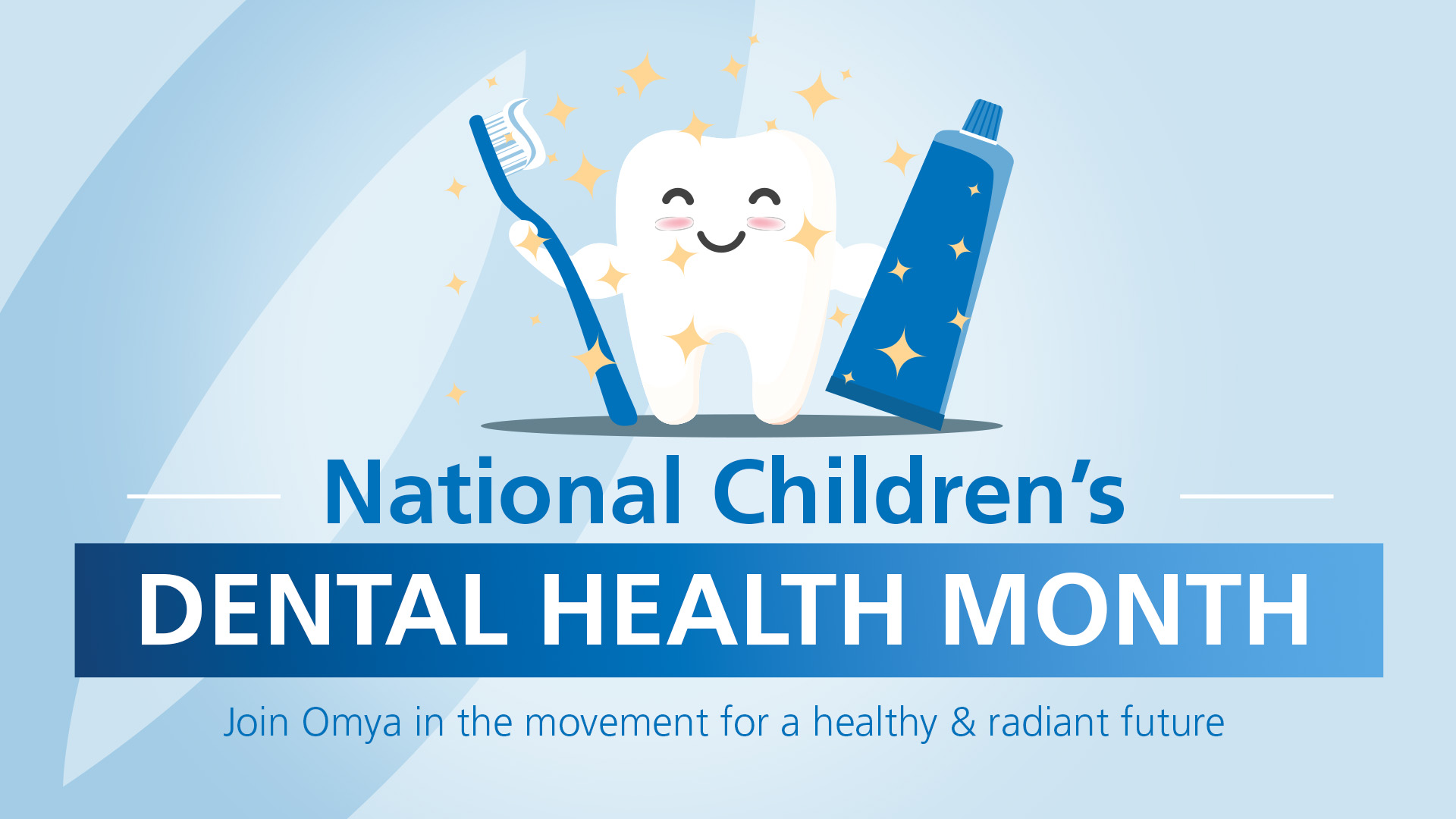February 8, 2024
February is National Children’s Dental Health Month
The World Health Organization (WHO) estimates that over 500 million children, globally, suffer from caries (cavities) of the primary teeth.1 Yet, cavities are widely considered to be completely preventable with proper oral hygiene, making it imperative that children learn proper brushing techniques from a young age. This is further reinforced by the American Dental Association (ADA) in promoting the importance of good oral health for children throughout the month of February.

Dental caries, more commonly known as cavities or tooth decay, are caused by bacteria naturally found in the mouth. The bacteria feed on sugars and produce acids which can cause tooth decay. Daily tooth brushing and flossing remove these bacteria, keeping them in balance to prevent tooth decay. Learning proper oral hygiene techniques as a child is the best way to create life-long habits for good oral wellness.
Children’s oral hygiene needs vary by age.2
| 0-6 months | Children this young won’t have any teeth to brush. However it’s still important to make sure to take care of their gums by gently wiping them clean after feedings. |
| 6-12 months | Toddlers will begin to get their first teeth around 6-8 months old. It’s important to continue to clean the gums after feedings, and start brushing those teeth very gently with an extra soft bristled toddler toothbrush. No toothpaste is needed at this point. |
| 1-2 years | The ADA recommends children should have their first dental appointment within 6 months of their first teeth erupting, and definitely by the time they are 1 year old. Continue to brush the teeth gently with an extra soft bristled toddler toothpaste. |
| 2-6 years | Children this age should begin brushing with a pea-sized amount of toothpaste on the toothbrush, and use floss to clean between the teeth. It is important to teach the children not to swallow their toothpaste. Although parents can begin teaching their children how to brush their teeth during this period, they will still require help to clean their teeth effectively. |
| 6-8 years | Most children will develop the dexterity required to effectively brush their own teeth during this period, and can begin to brush unsupervised. Children’s permanent teeth will also begin to come in at this time. |
| 8-21 years | Permanent teeth, including the wisdom teeth, will erupt during this time. It’s important for children to practice proper tooth brushing and flossing techniques during this time, and also have routine dental examinations. |
Click here for some children’s oral care formulation inspiration:
Toddler Training Gel
Fortify Natural Toothpaste
Learn more about Omya’s Omyadent 100 for tooth remineralization:
Utilize these resources for parents to teach children the importance of good oral health:
CDC Childrens Oral Health Activity Book
ADA Fun Activity Sheets for Kids
References;
